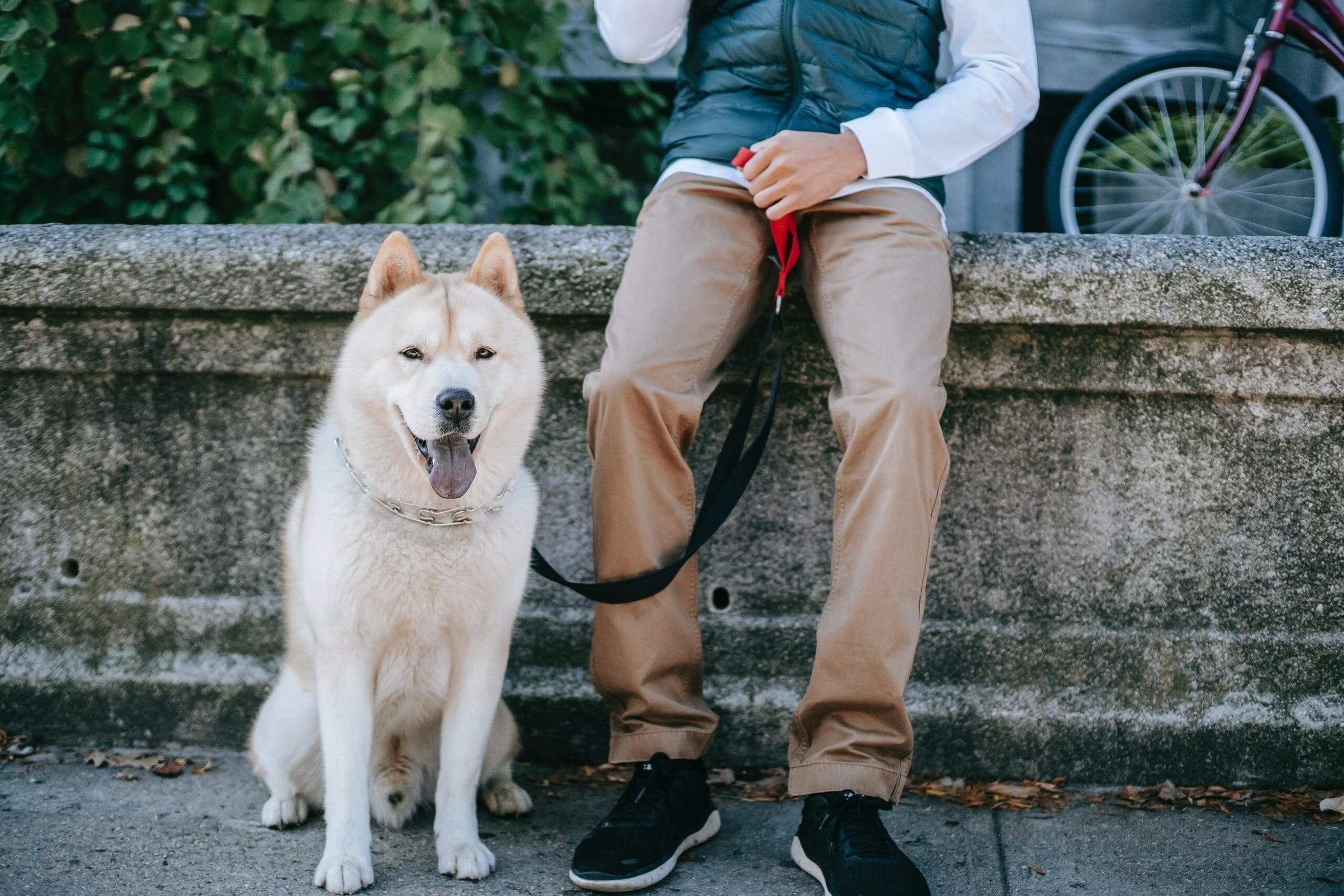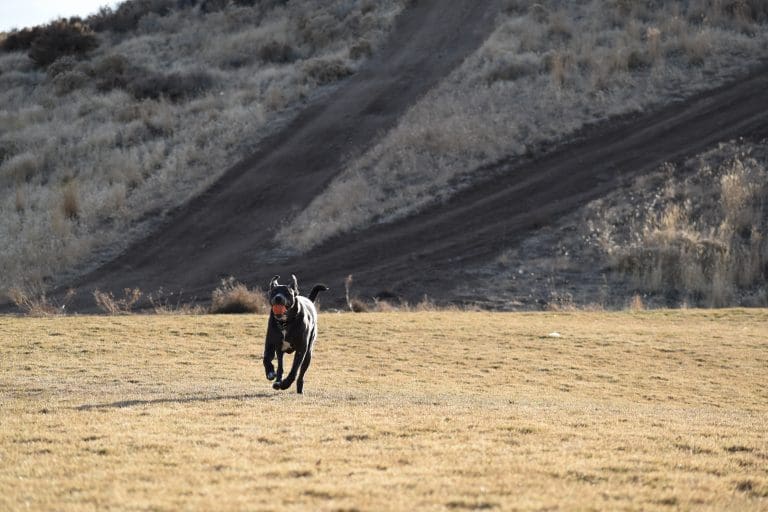How To Socialize A Dog?
Post Date:
December 10, 2024
(Date Last Modified: November 13, 2025)
Socializing a dog means intentionally teaching it to feel safe and behave politely around people, other animals, and everyday situations. Good socialization combines predictable handling, exposure to varied stimuli, and progressive training to build confidence.
Why Socialization Matters
Early and ongoing socialization supports behavioral resilience and lowers the frequency of fear-based responses in new situations within a few weeks of consistent practice [1].
Well-managed socialization improves welfare by increasing an animal’s ability to cope with stressors and supports safer public interactions and handling for caregivers and professionals [1].
Critical Periods and Timing
The primary puppy socialization window is approximately 3–14 weeks of age, during which positive exposures have the greatest impact on later social comfort [2].
Social learning continues into adolescence, commonly spanning about 6–18 months, so reinforcement and novel but safe exposures remain important through that phase [3].
Balancing infectious-disease risk and social exposure often means beginning careful public introductions after core vaccines are started, which typically occurs around 6–12 weeks depending on local veterinary guidance [4].
Assessing Your Dog’s Temperament and Needs
Before expanding exposure, evaluate baseline temperament by observing how the dog responds to approach, handling, novelty, and mild startle; note whether responses are curious, avoidant, or defensive.
- Common canine stress signals to watch for include lip licking, yawning, turning the head away, tucked tail, and avoiding eye contact.
- Consider age, health history, past social experiences, and breed tendencies when tailoring the plan.
- Set realistic thresholds: begin below the point where a dog shows clear stress and progress only when the dog is comfortable.
Documenting a short history of prior exposures and noting medical limitations helps distinguish fear-related reactivity from pain or sensory impairment that would change the plan.
Handling and Habituation at Home
Start handling routines early so touch around the ears, paws, mouth, and shoulders becomes expected and nonthreatening; pair handling with treats and soft praise so handling predicts reward rather than aversive outcomes.
Use short, frequent habituation sessions of about 3–5 minutes several times per day to build tolerance for grooming, nail trims, and veterinary handling [5].
Desensitize to household sounds by playing recordings at low volume and increasing intensity slowly while offering food or play; introduce crate use with positive reinforcement and make the crate a safe retreat rather than a punishment.
Socializing Puppies: Step-by-Step
Progressive exposures work best: introduce 1–2 new people or novel noises per day, keeping each session short and positive and limiting total session time to under 10 minutes until the puppy consistently shows relaxed behavior [4].
Begin supervised, vaccine-aware group interactions when local veterinary advice permits; many organized puppy classes accept puppies after initial vaccinations and often run for 4–6 weeks of structured lessons that combine social play with basic cues [1].
Use graded exposure: start at very low intensity and reward calm or neutral responses, then very gradually increase complexity by introducing different surfaces, clothing types, and controlled introductions to children and adults of varying heights and behaviors.
| Stage | Typical age range | Recommended session length | Main goals |
|---|---|---|---|
| Puppy socialization | 3–14 weeks | 3–10 minutes | Comfort with people, surfaces, and sounds |
| Adolescent reinforcement | 6–18 months | 5–15 minutes | Maintain tolerance and train impulse control |
| Adult maintenance | Older than 18 months | 5–15 minutes | Gradual new exposures and confidence-building |
| Under-socialized adult | Any adult age | Short, repeated sessions | Desensitization and counterconditioning |
Socializing Adult Dogs Safely
For adults with limited social experience, begin with choice-based interactions that let the dog move away from stressors while receiving rewards for calm orientation; emphasized predictability and routine build trust.
Use desensitization and counterconditioning: present the trigger at an intensity below the dog’s reaction threshold and pair the presence of that trigger with high-value food or play, increasing challenge gradually over sessions no faster than about a 10–20% rise in perceived intensity per step [3].
Allow for longer timelines in rescue or rehabilitation contexts; progress may be measured in weeks to months rather than days, and trainers should prioritize safety and reliable voluntary engagement.
Introducing Dogs to People
Teach polite greetings by rewarding calm approach and using permission-based petting: ask the dog to sit and hold the sit for a short duration before allowing contact, then gradually extend the hold time as the dog remains comfortable [5].
Start with brief sits of about 3–5 seconds and increase the time as the dog learns to tolerate attention without jumping or lunging [5].
When managing interactions with children or seniors, set clear boundaries, supervise closely, and coach handlers on calm movement and quiet voices to reduce overstimulation and accidental escalation.
Introducing Dogs to Other Dogs and Animals
Prefer neutral-territory introductions using parallel walks with an initial gap of roughly 10–20 feet to allow mutual awareness without forced proximity, then decrease distance only while both dogs remain relaxed [4].
Monitor body language closely for play signals like play bows and loose wagging versus stiff posture, intense staring, or raised hackles that suggest escalation; intervene early with a calm redirect when threshold signs appear.
For group play or multi-animal households, supervise frequently, rotate access to shared resources, and use structured time-ins and breaks so that social interactions do not become overwhelming for more sensitive individuals.
Managing Fear, Reactivity, and When to Seek Help
Distinguish fear, anxiety, and aggression by history and context: fear responses are defensive and often avoidant, while aggression can be the result of pain, learned escalation, or poor threshold management.
If progress in desensitization and counterconditioning is limited or the dog displays escalating or unpredictable aggressive signals, consider veterinary evaluation for pain or medical contributors and consult a certified behavior professional if significant improvement is not seen within about 6–8 weeks of consistent work [2].
Professionals commonly combine behavior-modification plans with management tools, caregiver education, and, when indicated, veterinary behavioral medicine interventions to reduce risk and improve outcomes [2].
When fear or reactivity are present, adopt a data-driven, safety-first approach that emphasizes small, measurable gains and caregiver skill-building rather than rapid exposure.
Practical session structure and pacing
Begin each session with a brief baseline check: note a simple 1–5 comfort score for the dog’s response to the trigger, where 1 is calm and 5 is aggressive avoidance, then aim for incremental improvement of one point every 3–7 sessions as a realistic early target [5].
Keep individual training interactions short and frequent: 3–10 minutes per focused desensitization or counterconditioning session, repeated 3–6 times per day for puppies and 1–3 times per day for adults depending on stress tolerance [3].
Progress intensity by no more than about 10–20% per step—examples include moving 20% closer in distance on a walk or increasing sound volume by 10%—and only increase when the dog shows relaxed or neutral behavior for at least two consecutive sessions [3].
Tracking progress and timelines
Measure progress weekly with short logs: record session counts, threshold distance or volume, and the 1–5 comfort score so you can objectively review changes over every 7-day period [5].
For many under-socialized adult dogs, expect measurable improvement within 4–8 weeks of consistent, correctly applied work; lack of improvement after about 6–8 weeks is a common indication to consult veterinary behavior resources or a certified behaviorist [2].
Puppy socialization gains are most durable when exposures continue through adolescence; aim for at least 10–20 varied, positive exposures per week during the primary window and maintain regular reinforcement thereafter [1].
Management tools, safety, and adjuncts
Use management tools to reduce risk while training: muzzles, leashes, head halters, and visual barriers can be used for safety but should be paired with desensitization so the dog does not associate the tool with punishment [4].
Allow choice and escape: provide an accessible safe space or crate during outings and training so the dog has voluntary withdrawal options; short crate breaks of 5–15 minutes can prevent overstimulation during social sessions [5].
Consider veterinary assessment for medical contributors when fear or aggression is new or worsening; many clinicians recommend baseline exams and may trial medical or nutraceutical support for periods of 4–12 weeks alongside behavior work when indicated [2].
Working with trainers and behaviorists
Seek trainers who use force-free, reward-based methods and aim for certification or recognized affiliations; for complex cases, a certified applied animal behaviorist or veterinary behaviorist is appropriate when the dog poses risk that cannot be managed safely by a trainer alone [2].
Expect provider plans to include clear daily exercises, objective progress markers (for example, increasing proximity by measured feet or reducing startle score by one point), and caregiver coaching sessions typically scheduled weekly or biweekly during the active rehabilitation phase [3].
Maintenance and relapse prevention
After a dog reliably tolerates a trigger, maintain exposure at a low, regular rate—about 1–3 exposures per week of moderate intensity—to prevent regression, with booster sessions of 5–15 minutes when environmental changes occur [1].
When life events occur (moves, household changes, new family members), re-establish a short, focused retraining block of approximately 1–2 weeks of increased supportive exposures to re-stabilize behavior [5].
Consistent, humane socialization improves safety and quality of life for dogs and people; small, measurable steps, careful monitoring, and professional collaboration when needed make socially confident dogs an achievable goal for most owners and caregivers [1].






